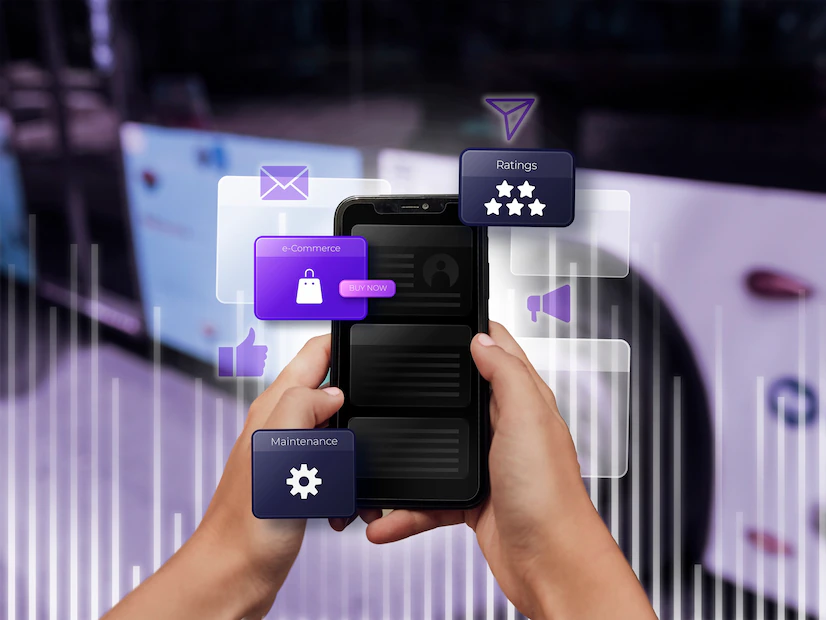The Voice over Internet Protocol refers to a technology that lets you make calls on the Internet. Thus, you no longer have to use cellular connections or conventional phone lines. Modern VoIP technologies are even more competent and provide options like calling, group conferencing, and file transfer.
VoIP uses new technology like UCaaS, 5G, and AI to offer businesses more sophisticated voice solutions. These solutions will enable more efficient communications with customers and colleagues. VoIP is easy to use and flexible. It is also affordable and delivers better audio quality. Plus, its scalability means that moving phone lines around is simple.
Enhancing VoIP’s Global Reach
Virtual phone numbers are a pivotal innovation in VoIP technology, providing a seamless way for businesses and individuals to establish a local presence worldwide without the limitations of traditional geographic constraints. These numbers allow calls to be made and received over the internet, significantly simplifying global communication processes. By leveraging VoIP to operate without direct ties to physical phone lines, users can enjoy substantial reductions in the costs associated with long-distance communications and the necessity for physical infrastructure.
A key advantage of this technology is its simplicity in allowing users to effortlessly get a virtual phone number, thereby enabling businesses to easily establish a local presence in any market. This capability enhances customer trust and satisfaction by offering local contact options without incurring high international call rates. The scalability of virtual phone numbers ensures that companies can adapt their operations with minimal effort, expanding or reducing their footprint without significant commitments or alterations to their communication setups. Additionally, integrating these numbers with essential VoIP features, such as call forwarding, voicemail to email, and customizable greetings, elevates the efficiency and professionalism of business communications.
The decision to integrate a virtual phone number into a business’s communication strategy is invaluable, especially for those looking to support remote work, expand into new international markets, or track the effectiveness of marketing initiatives. This approach not only positions companies to maintain a competitive edge in a digitally connected world but also navigates the challenges of compliance with local telecommunications regulations and the need for reliable internet connectivity. Embracing virtual phone numbers through VoIP technology marks a significant stride towards fostering innovative communication solutions, underscoring the dynamic evolution of global business operations.
AI-Integrated VoIP Systems

Integrated with AI, VoIP systems can automatically handle certain tasks that would otherwise require human intervention. For example, AI chatbots can assist customers with simple queries and help them navigate the system. They can also handle basic conference call tasks like setting up meetings, sending reminders, inviting members, etc.
This frees customer service agents to focus on more complex inquiries and improve the overall customer experience. AI can also be used to strengthen VoIP security. It can detect suspicious activity and prevent hacking attempts by analyzing network traffic. This ensures that businesses’ data is protected and their communication platforms remain safe from cyber threats.
VoIP technology is already transforming many industries, and it’s only expected to continue growing in popularity. AI integration with VoIP will enhance its functionality and improve how businesses communicate. Because of its features, you will find this very useful for your business.
This includes a more personalized experience, reduced fees, and increased reliability. This will boost the appeal of UC to customers and make it more attractive to small businesses.
Integration With Ucaas
VoIP allows businesses to call over the Internet instead of traditional phone lines, reducing telecommunication costs while providing the same features. Its scalability also makes it ideal for remote work. UCaaS, which includes VoIP among its many technologies, helps businesses reduce their reliance on hardware by eliminating the need for dedicated equipment. This allows them to cut their telephony costs and boost productivity simultaneously.
UCaaS also integrates team messaging, videoconferencing, and VoIP into one platform. Employees can seamlessly switch between communication channels without leaving the app. For example, if they are in the middle of a conversation on Slack and need to talk to someone on the phone, they can click and start a voice or video call with a single tap.
Streamlining communication platforms also increases employee efficiency and productivity by eliminating the need to toggle between multiple apps. This is especially important during peak contact times when teams can easily become overwhelmed by incoming calls.
The Rise Of Remote Work
The VoIP market has grown rapidly thanks to the increased adoption of cloud services, the rising popularity of mobile VoIP systems, and the rise of remote work. VoIP costs are incredibly cheap, and businesses save huge amounts when adapting to the system. One study found that companies protect 32 minutes of daily calls per team member after switching to VoIP.
VoIP works by converting voice signals into digital data segmented into smaller packets. It then sends these packets across a data line, ensuring they are recovered and timely by congestion. It also provides useful business features that bring voice calling into the modern age.
These include visual voicemail, digital faxing, call recording, and more. Employees can access these features on any mobile and desktop computer. This means they can work from anywhere – as long as they have secure and high-speed internet access.
AI-Powered Customer Service
Most business communication still takes place over the phone, and a VoIP system makes this work easier. It enables businesses to route incoming calls to the right people, allows for digital voicemails, and ensures no call or message goes unanswered. The technology also has additional features that make business communication more efficient.
For example, it offers conference calling options and customizable on-hold music, which can help keep customers engaged and improve the company’s overall customer experience. Businesses can choose from private on-premises or cloud-based VoIP systems.
Remote systems can be deployed as hardware PBX appliances or converged with other infrastructure, while a telecommunications carrier or service provider typically manages hosted systems. In either case, the systems can be stored in datacentres that are geographically relevant to their users.
This allows them to offer scalability and flexibility for businesses with remote offices or a distributed workforce. In addition, hosted systems allow for rapid deployment as traffic ebbs and flows.
The VoIP Technology: Benefits Associated
When it comes to considering the benefits, VoIP has a lot of them to offer. A primary reason why users love VoIP is due to its cost-efficiency. You can either make free calls or even if you pay for it; the cost is less. Unline cellular cells or conventional landlines; you do not have to pay a lot.
Apart from that, the technology offers great features in comparison to usual voice calls. Based on what kind of device you deploy to make VoIP calls, accessing video calls, group calls, and everything is very easy. Obviously, standard call features such as call waiting or regular caller ID is also available.
Consolidated communication technologies are its other benefits. With a VoIP system, you get a streamlined form of communication. Typically, a user receives video, text, or audio-based communications under one roof. This is beneficial for both the business and individual users.
Wrapping It Up
There is a great chance you have already been using VoIP technology in multiple apps. These might be FaceTime, Whatsapp, Skype, and even Telegram. But in case you don’t, computer and smartphone VoIP applications are the best starting point for leveraging internet telephony.
Apart from these apps, you might also select VoIP for your business or residence. However, that is typically more expensive and complicated. Much of the complexity is, though, limited to its initial setup.
So, that was all about VoIP technology and its future growth prospects. Let us know how relevant you found this article by sharing your comments below. Thank you for reading!
Read Also:
- Why Entrepreneurs Should Pay Attention To Cryptocurrencies In 2021
- Crypto Staking: Locking Up Crypto Holdings To Earn Interest
- Can I Convert My 401k To A Gold IRA?























